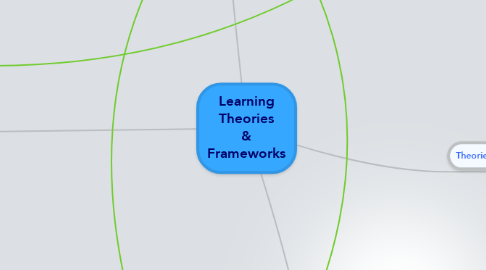
1. Theories of Technology
1.1. Media Ecology
1.1.1. The study of media as an environment; media is an environment we live in, and thus influences all aspects of our lives.
1.1.2. Concerned with interactions, such as those between media, technology, and communication, and how these affect people.
1.1.3. Technology influences the world we live in.
1.1.4. Still in the infancy stage as a theory, and thus not single, concrete definition.
1.2. SCOT
1.2.1. Stands for Social Construction of Technology
1.2.2. Human activity is shaped by technology; we can not understand what a technology is and how it is used without trying to understand how it is engrained in human culture.
1.2.3. Different technologies can be interrupted differently by different cultural groups.
2. TPACK
2.1. Stands for Technological, Pedagogical, and Content Knowledge
2.2. Main focus is the interplay between technology, pedagogy, and content knowledge.
2.3. These aspects can be viewed in isolation, but the main goal is to master to complex interplay between them.
2.4. These component are further viewed within the unique context of a classroom.
2.5. Teachers must use this framework to figure out how to successfully integrate technology into the classroom in an effective and efficient way.
3. Philosophy of Teachology
3.1. Reflects a teachers personal philosophy about how technology should be used within the classroom.
3.1.1. Much like the traditional teaching philosophy, except with a focus on technology.
3.2. May include the teachers personal opinions and perspective about classroom technology.
3.3. Can be presented as a written statement.
3.3.1. Using technology to present my philosophy of teachology can be a great tool to further my points and opinions.
4. Theories of Learning
4.1. Connectivism
4.1.1. Based on building networks and connecting with others
4.1.2. Knowledge and information does not exist within a single individual, but through connections made with others and whatever resources are avaliable'
4.1.3. Embraces emphasis given to technology in our current world
4.1.4. Teacher becomes more of a guide on how to find and use information, rather then getting students to try and memorize it.
4.2. Constructivism
4.2.1. Students build and construct knowledge and learning on their own, based on previous knowledge and learning experiences
4.2.2. Learning is an active process
4.2.3. Teachers work with students to find tasks that will be challenging, but not too challenging that student will be unable to complete it.
4.2.4. Teachers help students construct new meaning and understanding through active learning like problem solving, rather than trying to get them to memorize facts given to them.
4.2.5. Teacher does not take an active role, but rather acts as an assistant to the child's learning.
4.3. Behaviourism
4.3.1. A complex process of responding to distinct stimuli
4.3.2. Learning happens when a stimulated response becomes associated with an un-stimualted response
4.3.3. Teachers must discover the best positive or negative consequences to help shape the behaviour
4.3.4. Teacher use a complination of positive reinforcement, negative reinforcement, and punishment to produce desired behaviours, such as completed homework.
4.4. Cognitive Load
4.4.1. An information processing theory that deals with the processes of memory
4.4.2. Deals with working memory and long term memory.
4.4.3. Information must be processes by the working memory and arrive in the long term memory for something to be considered learned
4.4.4. If working memory is overloaded, information will be be passed to the long term memory and learning will not occur.
4.4.5. Teachers must be careful not to overload working memory, and must rely on things like repitition and practice to make sure information reaches long term memory.
